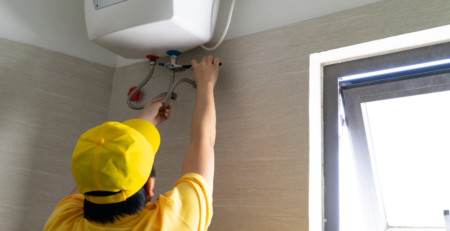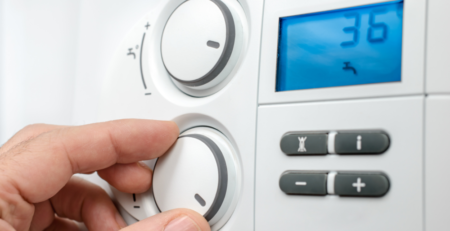Sustainable Living: Harnessing Solar Power with Electric Water Heaters
Harnessing Solar Power with Electric Water Heaters As the world embraces sustainable living practices, the integration of renewable energy sources into everyday appliances becomes paramount. Electric water heaters, a staple in households, have evolved to support eco-friendly initiatives. This guide explores the concept of harnessing solar power with electric water heaters, providing insights into the benefits, functionality, and considerations for those seeking a more sustainable home.
**1. Solar-Powered Water Heating Systems
Solar-powered electric water heaters utilize energy from the sun to heat water, offering a sustainable alternative to traditional heating methods. These systems consist of solar collectors, which absorb sunlight and convert it into heat, and an integrated electric water heater that further boosts the temperature as needed. This dual functionality allows homeowners to capitalize on solar energy while ensuring a consistent and reliable hot water supply.
2. Environmental Benefits of Solar Power
Choosing a solar-powered electric water heater aligns with eco-friendly practices and contributes to environmental conservation. Solar power is a renewable energy source that produces minimal greenhouse gas emissions compared to conventional electricity generation methods. By harnessing solar energy for water heating, homeowners actively reduce their carbon footprint, fostering a more sustainable and planet-friendly lifestyle.
3. Reduced Energy Costs
One of the compelling advantages of solar-powered electric water heaters is the potential for reduced energy costs. Solar energy is freely available, and harnessing it to heat water can lead to significant savings on electricity bills. As sunlight is abundant and inexhaustible, homeowners can tap into this cost-effective energy source to power their water heaters, experiencing long-term financial benefits.
4. Hybrid Functionality for Continuous Hot Water
Solar-powered electric water heaters often incorporate hybrid functionality to ensure a continuous supply of hot water. In situations where insufficient sunlight is available, the system seamlessly switches to conventional electric heating, maintaining a consistent water temperature. This hybrid approach provides reliability, allowing homeowners to enjoy the benefits of solar power without sacrificing comfort.
5. Federal and Local Incentives
Governments and local authorities worldwide recognize the importance of promoting renewable energy adoption. Many regions offer financial incentives, tax credits, or rebates for homeowners who invest in solar-powered appliances, including water heaters. Exploring these incentives can significantly offset the initial costs of installing a solar-powered electric water heater, making sustainable living more accessible and affordable.
6. Off-Grid Capability
Solar-powered water heaters offer the added advantage of off-grid capability. In areas with unreliable or unavailable grid power, these systems can operate independently, relying solely on solar energy. This off-grid capability enhances the resilience of your home’s hot water supply, providing a sustainable solution in locations where traditional power sources may be limited.
7. Low Maintenance Requirements
Solar-powered electric water heaters are known for their low maintenance requirements. The absence of complex mechanical components in the solar collectors contributes to their durability and reliability. Routine checks to ensure proper system operation and occasional cleaning of the solar collectors are usually sufficient to maintain optimal performance. The minimal maintenance needs make solar-powered systems an attractive and hassle-free sustainable option.
8. Long-Term Return on Investment
While the initial investment in a solar-powered electric water heater may be higher than traditional models, it offers a compelling long-term return on investment. The reduced energy costs, potential incentives, and extended lifespan of solar-powered systems contribute to ongoing savings. Homeowners who prioritize sustainability and are committed to long-term environmental stewardship find the investment in solar-powered water heaters to be a wise and rewarding choice.
9. Considerations for Installation
Optimal installation is crucial for the effectiveness of solar-powered electric water heaters. Consider factors such as the orientation and tilt of solar collectors, ensuring they receive maximum sunlight exposure. Placement on unshaded areas of the roof or, if applicable, on the ground, is essential. Consulting with a professional installer helps determine the best configuration based on your location and specific requirements.
10. Hybrid Models for Versatility
For those transitioning to sustainable living gradually, hybrid models offer a versatile solution. These water heaters allow homeowners to switch between solar and traditional electric heating based on preference or seasonal variations. Hybrid models provide flexibility and the opportunity to progressively embrace solar power while still maintaining a reliable hot water supply.
Conclusion
Harnessing solar power with electric water heaters is a tangible and impactful way for homeowners to contribute to sustainable living. The environmental benefits, reduced energy costs, and long-term return on investment make solar-powered systems an attractive option for those committed to eco-friendly practices. Embrace the sun’s abundant energy to heat your water sustainably and play a part in building a greener and more resilient future.
Get Access Now
Ready to explore the sustainable possibilities of solar-powered electric water heaters? Visit for insights, comparisons, and expert recommendations on water heaters that harness solar power. Discover models that align with your commitment to sustainable living, providing a reliable and eco-friendly hot water solution for your home.





Leave a Reply